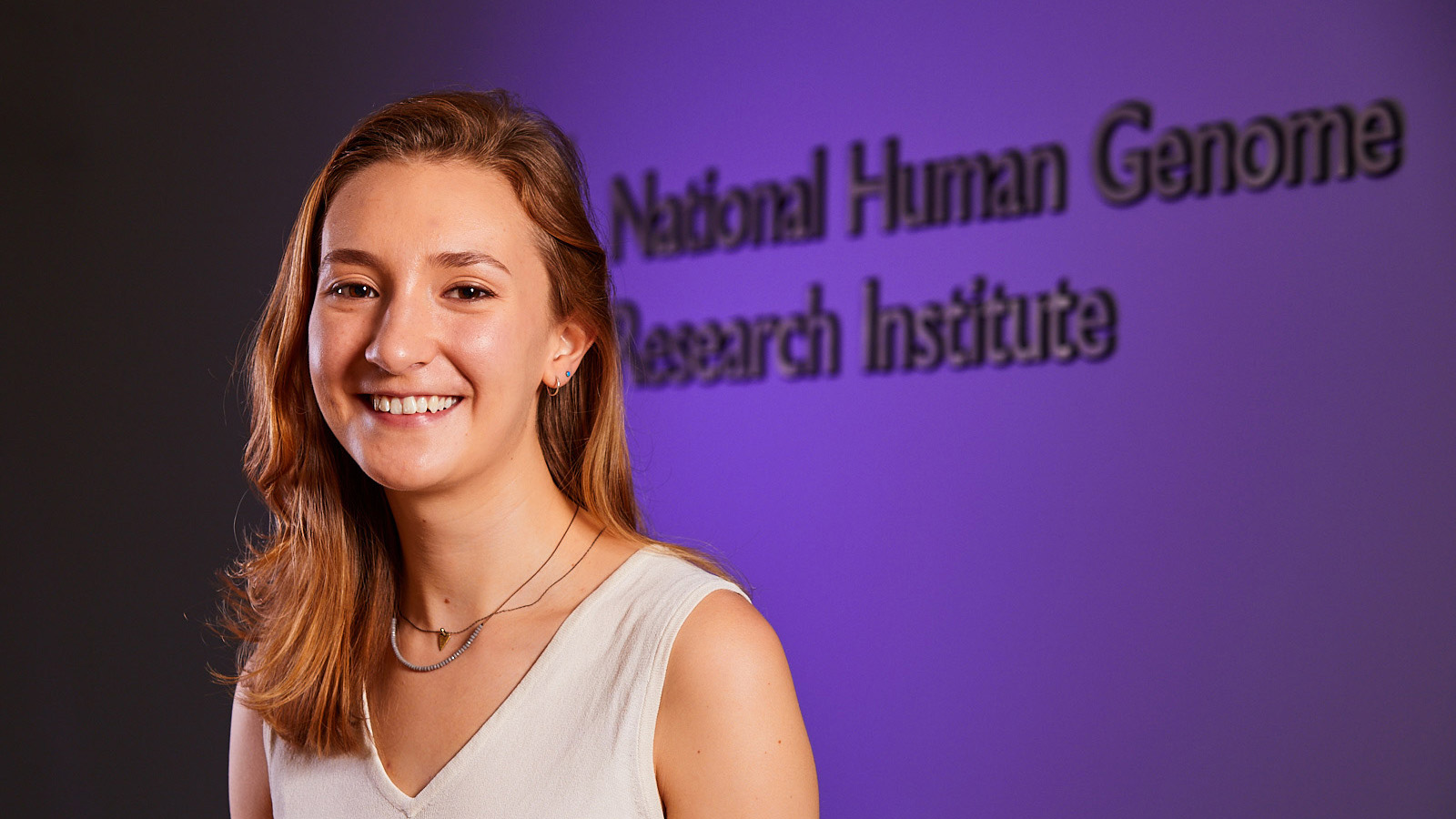One Year OutJulia Baker ’16Scientific Program Analyst at National Institutes of Health
One Year OutJulia Baker ’16Scientific Program Analyst at National Institutes of Health
More than two decades ago, scientists worldwide mobilized to study the human genome. The $3 billion project has helped researchers understand the role genetics plays in human health, and it has spawned new approaches to combating cancer, diabetes, and heart disease.
The federal government invests more than half a billion dollars a year continuing this genomics research through the National Institutes of Health, and for the past year, Julia Baker ’16 has been part of a team that is assessing some of this work. Baker, who was a biochemistry major at Vassar, recently finished a one-year stint as a scientific program analyst at the National Human Genome Research Institute, a division of NIH, in Bethesda, MD.

“My job is to help assess how NIH funds are being used, how its programs are benefiting the growth of science,” Baker says. “I attend a lot of meetings, and I’m on a lot of conference calls with investigators from top universities. I help our program managers provide guidance on where the research is going.”
Recently, Baker was part of a team that analyzed a genome research project that had reached the midway point of its funding cycle. “We had a mid-course check-in with some expert advisors on where the project should go from here, where the weak points were and how to fix them,” she says.
Baker says she secured the position with help from the Selected Liberal Arts Consortium, through Vassar’s Career Development Office. She says her experience in the lab at Vassar helped her land the job. Working with Associate Prof. of Chemistry Eric Eberhardt, Baker conducted original research on antibiotic resistance enzymes and presented a poster during her senior year at a meeting of the American Society of Biochemistry and Molecular Biology in San Diego. “A huge part of my application process was talking about the research I’d done myself,” she says. “That was what made me a good candidate.”
“I had always been interested in science….But I also had an opportunity to take history and philosophy courses and loved the variety of my academic experience.”
Baker grew up in Goldens Bridge, NY, about 40 miles south of the Vassar campus, and applied on the advice of her guidance counselor. “I had always been interested in science, and I started as a biology major,” she says. “But I also had an opportunity to take history and philosophy courses and loved the variety of my academic experience,” she says.
Baker switched her major to biochemistry after she took a course from Prof. Sarjit Kaur. “I also took organic chemistry and advanced organic chemistry from Prof. Kaur,” she says. “The advanced course was one of my favorites because it was so small – there were only six of us in the class.”
Baker says her post-Vassar experience with NIH had helped her gain a “broader perspective on how the science community works and where the money comes from.” And it enabled her to gain new skills. “I loved my lab work and intend to return to it,” she says. “But now I know a lot more about how to write grants, how to get your work funded.”
Baker says the job also helped her understand the role collaboration plays in the success of many scientific projects. “The institute funds a lot of consortiums and brings a lot of scientists with different backgrounds together,” she says. “We helped connect a lot of scientists who otherwise would not have been working with each other, and it was great to see the synthesis of ideas from so many different areas of science.”
She says her Vassar education had prepared her well for this aspect of the job. “The research I did prepared me well,” Baker says. “You have to have confidence in your ability to synthesize data, to teach yourself to figure it out. That’s a valuable skill in all areas of science.”
Baker says working with a team of analysts who already earned advanced degrees had given her confidence that she will succeed in graduate school. “I worked with a bunch of PhDs, and I was included as part of that team – my input was valued,” she says. “I think the experience has made me a strong candidate for PhD programs.”